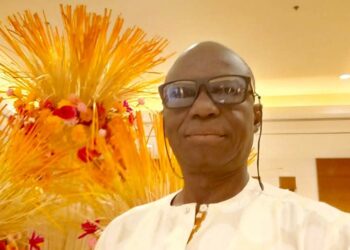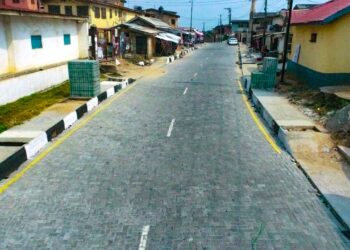Contrary to claims by President Muhammadu Buhari administration on fight against corruption, Senate President Bukola Saraki has said that Nigeria is very far from meeting the standard to fight graft.
The Senate President and a member of the ruling All Progressives Congress (APC) said that the only area Buhari’s administration has made impact in the fight against corruption since coming into power two years ago, was bringing it back as a top national political agenda.
He stated this in a speech he delivered at the Shehu Yar’adua Centre, Abuja on Monday, during the launch of Senator Dino Melaye’s book entitled, “Antidotes for Corruption.”
Saraki who further canvassed for independent and adequately trained and sound anti-corruption agencies argued that the reason Nigeria’s fight against corruption has met with limited success could have been because it favours punishment over deterrence.
“If the purpose of government is to improve the quality of lives of its people, then any conversation about corruption must focus primarily on how it affects human development, whether it is health, wealth or education.
“I admit it is early days yet, but one area I believe we have made remarkable progress in the past two years of the Buhari led administration is that corruption has been forced back to the top of our national political agenda.
“Every single day, you read the newspapers, you listen to the radio, you go on the internet, you watch the television, the people are talking about it. The people are demanding more openness, more accountability and more convictions. Those of us in government are also responding, joining the conversation and accepting that the basis of our legitimacy as government is our manifest accountability to the people.
“And talking about antidotes, I am convinced that we must return to that very basic medical axiom that prevention is better than cure. Perhaps, the reason our fight against corruption has met with rather limited success is that we appeared to have favoured punishment over deterrence. The problem with that approach however, is that the justice system in any democracy is primarily inclined to protect the fundamental rights of citizens. Therefore, it continues to presume every accused as innocent until proven guilty.
“Most often, it is difficult to establish guilt beyond all reasonable doubts as required by our laws. It requires months, if not years of painstaking investigations. It requires highly experienced and technically sound investigation and forensic officers. It requires anti-corruption agents and agencies that are truly independent and manifestly insulated from political interference and manipulation.
“We must admit that we are still far from meeting these standards. Most often therefore, because our anti-corruption agencies are under pressure to justify their existence and show that they are working, they often tend to prefer the show over the substance.
“However, while the show might provide momentary excitement or even public applause, it does not substitute for painstaking investigation that can guarantee convictions,” Saraki said.
Saraki then called for the review of present approach used in fighting corruption in the country, preferring that systems that make it “a lot more difficult to carry out corrupt acts or to find a safe haven for corruption proceeds within our borders,” be built by government in order to effectively fight corruption.
He said, “In doing this, we must continue to strengthen accountability, significantly limit discretion in public spending, and promote greater openness.”
Present Approach To Fight Against Corruption Not Yielding Result -Saraki
0
Leave a Reply Cancel reply
BROWSE BY CATEGORIES
- #SmartLagos
- Basketball
- Beauty
- Boxing
- Breaking
- Business
- Careers
- Crime
- Default
- Education
- Entertainment
- Event
- Fashion
- Featured
- Football
- Gaming
- Gist
- Golf
- Health
- Inspirational Patience
- Interview
- Investigative
- Law
- Lifestyle
- local
- MetroMan
- MetroPerson
- metroplus
- MetroProfile
- Movies
- Music
- MUSIC
- New Music
- News
- nolly wood
- Nollywood
- Novels
- Odawood
- Opinion
- Parenting
- Photos
- Politics
- Press Release
- Relationship
- Religion
- Scandal
- Security
- Sex
- Society
- Sports
- Technology
- Travel
- TV
- Videos
- Weird
- Wheels
- World
BROWSE BY TOPICS
#COVID19Nigeria
#EndSARS
Adams Oshiomhole
Akinwunmi Ambode
APC
ASUU
atiku
Atiku Abubakar
Big brother Naija 2020
boko haram
Buhari
Bukola Saraki
CBN
court
COVID-19
davido
ECOWAS
Edo Election
Edo State Election
efcc
Featured
FG
Goodluck Jonathan
gunmen
INEC
Kayode Fayemi
Lagos
Lagos State
Muhammadu Buhari
NCDC
NDLEA
news
Niger
Nigeria
NLC
Obaseki
PDP
police
politics
President Buhari
Sanwo Olu
senate
tinubu
wike
Yemi Osinbajo
© Copyright MetroNews NG 2020. All rights reserved.









